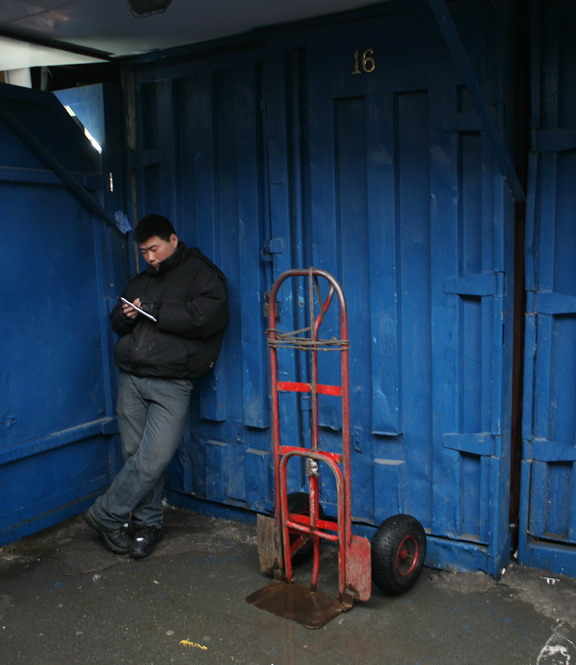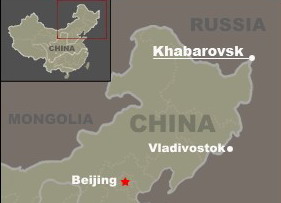
With the retail business turning bleak, a Chinese porter is resting outside Vladivostok’s Chinese market.

During early the 1990s, when the Soviet Union split up and the Chinese economy was burgeoning, a great number of Chinese crossed the country’s northeastern border to start businesses in neighboring Russia. Every day, in every open border port, a stream of new arrivals queued to leave China with their belongings on their backs. They went on to become street vendors and managers at wholesale Chinese markets strewn from the far east to large and medium-sized cities across Russia.
Trucks carry their goods to markets throughout the country, but most are destined for cities in the far east, one of the nearest being Khabarovsk, just 30 kilometers from the Chinese border. In the markets there, young Chinese men once thrived on their small but prosperous businesses.
But their heyday came to an end when, in November 2006, the Russian government issued a ban on foreigners working in retail goods, effectively an eviction notice for the 100,000 Russia-based Chinese businessmen in the trade. Chinese products were dumped at low prices, and other Chinese businesses began suffering as well. For these emigrants, life is about change, and risk.
| 1 | 2 |
- 民生银行携手VISA推出VISA奥运信用卡 | 2008-01-18
- Democracy, Disparity, and Disgrace | 2008-01-17
- Both Panic and Optimism Over China's New Online Video Rules | 2008-01-16
- PICA再获千万美元风投 | 2008-01-15
- From Romantics to 798 | 2008-01-14











